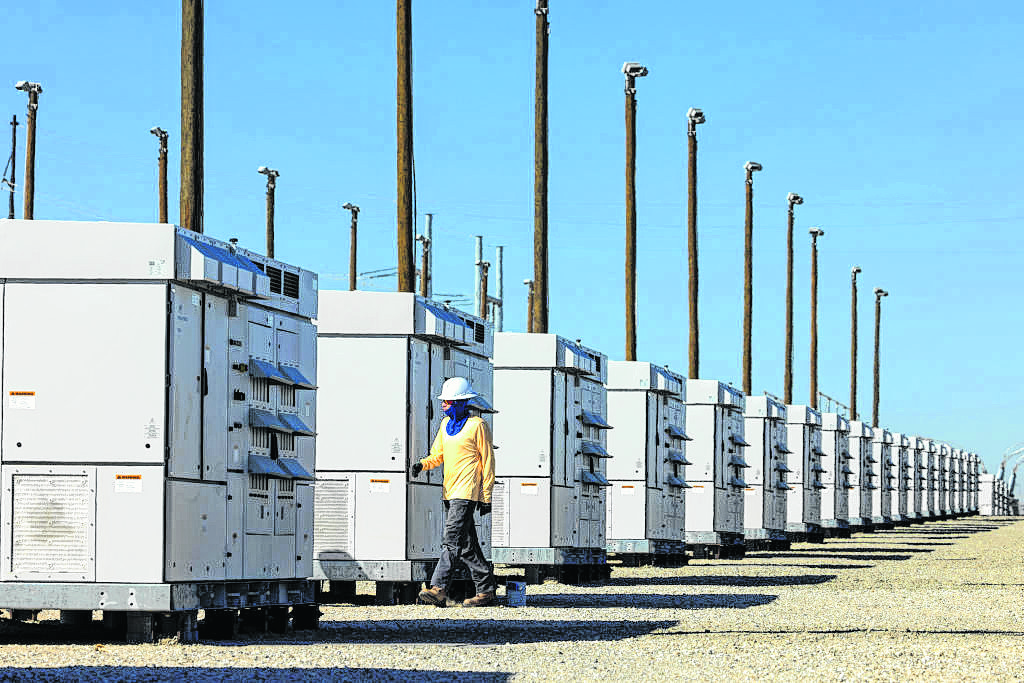An emerging technology, lithium ion battery storage plants, which proponents say will provide cheaper and cleaner energy, is running into strong headwinds on Long Island from towns and other critics who say they fear fires and health hazards from such projects.
The latest battle shaped up in late fall in Nassau County, where a Texas-based company, Jupiter Power, owned by the financial giant Blackwater, is proposing to build a 275 megawatt battery energy storage system near the waterfront in Glenwood Landing at the site of a legacy fuel oil port operation. If such a facility were built, it would be the largest in New York State and the country.
Such storage facilities are considered crucial by some because they are said to save excess wind and solar power when the sun isn’t shining and the wind isn’t blowing. The International Energy Agency has said that a huge amount of storage capacity is needed to help the world meet its goal of tripling renewable energy by 2030.
But Long Island towns are stepping up to block such facilities. The town of Oyster Bay, which includes Glenwood Landing, has extended a moratorium against the project into the spring of 2025, a spokesman told the Press.
A half a dozen other Long Island towns, including Hempstead and North Hempstead in Nassau, have also approved moratoriums.
But Gov. Kathy Hochul and environmental groups see the technology as the lynchpin of an effort to make use of renewable energy sources and replace fossil fuels.
Hochul in late 2024 set out to deal with critics, announcing a series of recommendations for enhanced fire-safety standards in hopes of expanding such facilities across the state and particularly on Long Island.
A recent study by the University of Texas at Austin noted that “there has been a dramatic increase in the use of battery energy storage systems” in the United States. The study said they are used in residential, commercial and utility applications.
Such a facility is now operating in East Hampton.
The university’s report acknowledged that lithium cells “can experience thermal runaway which causes them to release very hot flammable, toxic gases. In large storage systems, failure of one lithium cell can cascade to include hundreds of individual cells. The hot flammable gasses can result in an explosion, or a very difficult fire to extinguish.”
Indeed, a fire erupted at the National Grid/NextEra-owned facility in East Hampton two years ago. The fire burned for about 30 hours. The facility is back in operation.
But situations like this are exactly what Long Island residents fear. There were two other battery facility fires in the state last year — one in the town of Lyme, in upstate Jefferson County and the other in the town of Warwick in Orange County.
One such fire in San Diego, described as the world’s largest, burned for five days. The California fire department said that “harmful gases” made access an issue for firefighters.
In mid-December, about 100 people crowded in St. Luke’s Church in Sea Cliff for a meeting with Jupiter executives. Most appeared strongly opposed to the company’s plans.
Hans Detweiler, senior director of development for Jupiter, said the company was listening to concerns and that “safety is our top priority.” He said the company was making a $250 million investment into the project and promised that taxes would not rise as a result of the project. He said plans calling for construction would take about two years to complete.
But he heard mostly hostile questions from the audience.
“You’re not listening to the community,” one woman shouted.
“This is going to be another 9/11,” yelled another.
Many in the crowd yelled in protest when Detweiler said the batteries are mostly made in China and Korea.
In an interview with the Press later, George Pombar, president of the Glen Head-Glenwood Landing-Greenvale Council, said he had met with Jupiter executives in the recent past, but his concerns were not allayed.
“Our number one concern is the safety factor,” Pombar said. “It hasn’t been resolved and it doesn’t seem like it’s going to be resolved in the near future.”
He noted also that the three North Shore communities are densely populated and that a fire could be catastrophic.
“We have a school close to that site,” he said.
Pombar also said Jupiter had not been “transparent” with the community. Pombar said his council is mobilizing to fight the proposal, reaching out to citizens and election officials in the county and the state.
“We’ll let them know we are unhappy,” Pombar said.

































